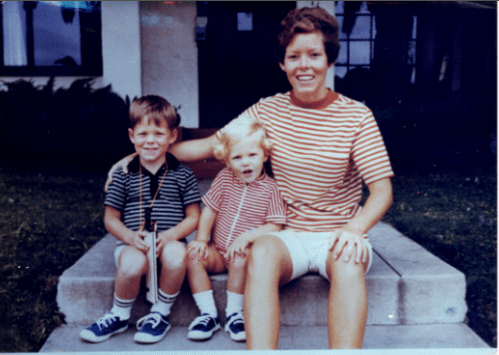Advertisement
When Your Writing Is Part of Your Healing
We recently ran an essay by Sarah Baker, exploring the links between her childhood asthma, her mother's early death, the family chaos that followed and how it all played out physically and psychologically into adulthood.
Sarah told me the response to her post, which also raised the question of whether becoming a mother herself helped alleviate her asthma, was overwhelming and gratifying. Now, Dr. Annie Brewster, a Boston internist and frequent CommonHealth contributor who uses storytelling therapeutically, as a path toward healing, followed up with Sarah in a revealing audio interview. (For more on Brewster's approach to personal storytelling for health, listen to her recent TedX Talk above).

Here's a snippet from the interview, which you can listen to in full on Brewster's website, Health Story Collaborative:
Annie Brewster: I'm really interested in what you said about that you never really consciously thought about this until you started to write about it. I'm really fascinated with the process of storytelling and how that sort of helps move somebody from one place or another. So, can you speak to the process that you went through in writing this and how that helped you and what it meant then to put it out there in a public way and get feedback on it; what that was like for you and what did it take to get to a place where you felt ready to take that on as a writing project?
Sarah Baker: I remember a number of years ago when I started writing, a friend of mine who is a successful writer said, "write what's raw" so I always try to write what hits a chord in my heart. So writing about my childhood and writing about my mother's death is what I tend to write about. This was the first time I wrote about my asthma and it was hard to write about it because I don't have a lot of memory. I had to interview my Dad, I had to do some research, and I had to relive the trauma. I just kept working at [the story] and sometimes felt a little sick after writing but I just kept working. I usually write ten drafts before I show it to any one. I showed it to my husband and he reacted positively. I showed it to a class that I was in and to my teacher and they responded positively. I thought maybe I've struck something here. Then the story sat in my computer for a year; it did. And it was after I started taking a class about the book I'm working on that I decided to send it out. Maybe the year allowed it to percolate so it didn't feel as scary. Once it was out there, the feedback was great. People came out of the woodwork. People that knew me as a kid, that knew me when I had a collapsed lung or people who knew me as a kid who didn't know any of this. They were all very moved by the piece. That was very powerful. My mother-in-law said, "It’s like you've come out"...my interior world had been different from my exterior world; people might see me as this successful or...successful is the wrong word but kind of, um...what is the word I'm looking for?
Annie Brewster: Together…
Sarah Baker: Together... you know, with a lovely house and a great husband and wonderful children and all of that; I have a wonderful life but I had this crazy history that people didn't know about so all of a sudden they know this side of me. That has been really powerful.
Annie Brewster: How come people didn't know about that part of you? What kept you from sharing it before this essay?
Sarah Baker: Well, I think that people at the time knew about it because they could see me being sick but then I think I just put everything, all of these pieces of me, on the back burner and I just kept moving forward, trying to almost erase the past. I think that is probably what happened.
Annie Brewster: Do you feel like there was ever any shame in it?
Sarah Baker: That is a really interesting question. I don't know. Maybe it felt like a weakness or something that I had to put aside? I never even brought it up. I didn't even think about my asthma really until I was writing this piece, thirteen years after my asthma went away. It's only now that I'm beginning to think about my relationship to my asthma and why I might not have talked about it for all of those years. I don't know.

